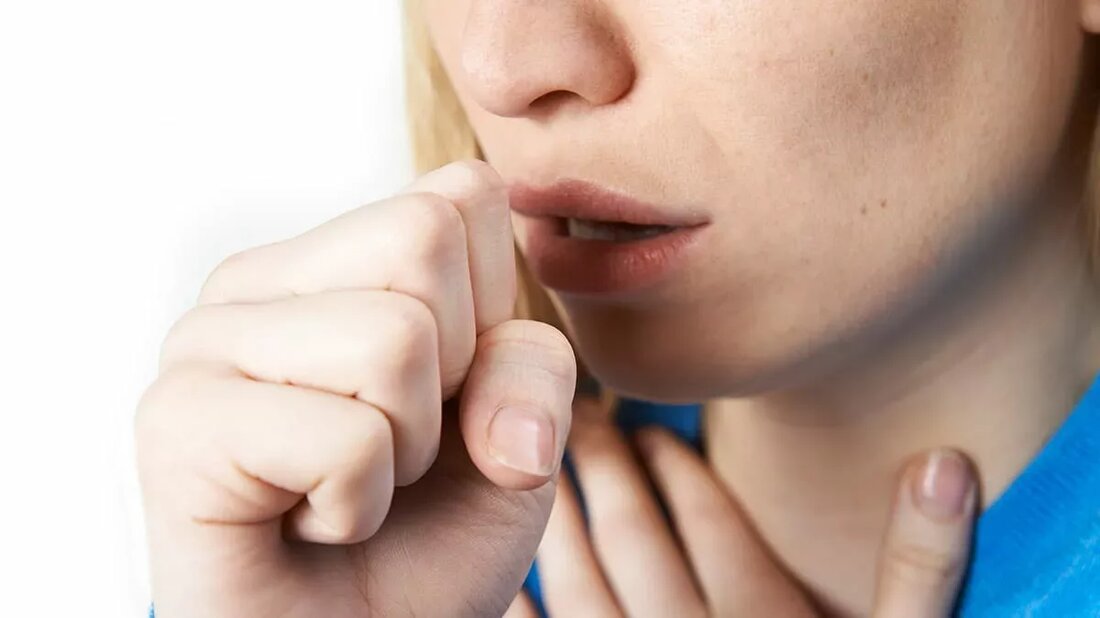Four types of coughs and when to seek treatment
Cough is the body's way of clearing an irritant from the throat, airways and lungs and can be divided into four main types: wet dry paroxysmal croup cough can protect you from smoke, mucus, dust and pollen. However, coughing can also be a sign of illness or a serious health condition. Read on to learn how to tell what type of cough you have, how to treat it at home, and when to seek medical care. Wet Cough This type of cough sounds wet because it carries mucus...

Four types of coughs and when to seek treatment
Coughing is the body's way of clearing an irritant from the throat, airways, and lungs and can be divided into four main types:
- feucht
- trocken
- paroxysmal
- Krupp
Coughing can protect you from smoke, mucus, dust and pollen. However, coughing can also be a sign of illness or a serious health condition. Read on to learn how to tell what type of cough you have, how to treat it at home, and when to seek medical care.
Wet cough
This type of cough sounds wet because it brings with it mucus. It can be “acute”, i.e. h. last less than three weeks, or “chronic”, i.e. h. last up to several months.
A wet cough is a normal symptom of:
- einer Erkältung oder Grippe
- Asthma
- Bronchitis
- einer chronisch obstruktiven Lungenerkrankung (COPD)
- Lungenentzündung
When to get a wet cough treated
Most wet coughs go away on their own. Home remedies and over-the-counter cough medicines can help relieve symptoms. Contact your doctor if the cough persists for more than three weeks or you:
- dicken, gelb-grünen Schleim abhusten
- kurzatmig sind oder keuchen
- hohes Fieber haben
- leichte Schmerzen in der Brust haben
Dry cough
Dry cough feels like a tickle in the back of the throat. It can also cause long, hacking coughing fits. As a rule, no mucus is stirred up. Dry cough can be caused by inflammation of the airways. This type of cough can occur for several weeks after the cold or flu has passed.
A dry cough can be a symptom of:
- einer Erkältung oder Grippe
- Allergien
- Asthma
- COVID-19
- Krupp
- gastroösophageale Refluxkrankheit (GERD)
- Reizstoffe wie Luftverschmutzung, Staub oder Rauch
- Kehlkopfentzündung
- Medikamente wie ACE-Hemmer
- Nasennebenhöhlenentzündung
- Halsentzündung
- Mandelentzündung
When should you get a dry cough treated?
Most types of dry coughs go away on their own. Home remedies and over-the-counter cough medications can help relieve symptoms.
Paroxysmal cough
A paroxysmal cough is a violent and uncontrolled cough that is strenuous and painful. You may have difficulty breathing and even vomit. Whooping cough (pertussis) is the most common cause of paroxysmal cough. Other causes are:
- Asthma
- Erstickungshusten
- COPD
- Lungenentzündung
- Tuberkulose
When to treat a paroxysmal cough
Whooping cough (pertussis) is contagious but can be difficult to diagnose initially when symptoms resemble a cold. If your symptoms worsen after one to two weeks and you develop a painful and exhausting cough, you should see a doctor. You can treat whooping cough with prescribed antibiotics.
If you get whooping cough, your family or others you come into close contact with should talk to a doctor to determine whether treatment is needed. Whooping cough can be particularly dangerous for infants who have not received a Tdap vaccine.
Croup cough
Croup is a viral infection that causes irritation and swelling of the upper respiratory tract, making breathing difficult. Croup cough has a characteristic “barking” sound and can cause a hoarse voice and squeaky breathing. Croup usually affects children up to 5 years old. Croup is usually contagious up to three days after symptoms appear or fever breaks out. Adults are usually not affected by croup because their airways are larger than a child's.
When should you seek treatment for croup cough?
Although croup can be frightening for both children and parents, it usually clears up on its own in less than a week. In severe cases, your doctor may recommend treatment with steroids (Tylenol®) or prescribe inhalation therapy.
Talk to your doctor if your child's croup worsens or the cough lasts longer than three weeks and your child:
- dicken, gelb-grünen Schleim aushustet
- kurzatmig ist oder keucht
- hohes Fieber hat
- leichte Schmerzen in der Brust hat.
- Hausmittel gegen Husten
No matter what type of cough you have, here are some home remedies you can try:
- Halten Sie Ausschau nach rezeptfreien Hustensäften, die Thymian enthalten
- Lutschen Sie Hustenbonbons oder Rachenlutscher
- gurgeln Sie 4 bis 5 Mal am Tag mit Salzwasser
- Erhöhen Sie die Luftfeuchtigkeit oder nehmen Sie eine warme Dusche oder ein Bad, um den Schleim zu lösen
- Trinken Sie viel Wasser oder warme Getränke
- Fügen Sie Ihrem Wasser natürliche Inhaltsstoffe hinzu, die antibakteriell, entzündungshemmend und antimikrobiell wirken oder die Schleimlösung unterstützen können, z. B. schwarzer Pfeffer, Zimt, Nelken, Honig, Knoblauch, Ingwer, Zitrone, Eibischwurzel, Pfefferminze, Ulme, Thymian und Kurkuma.
Home remedies for croup
Croup often goes away within about a week. In the meantime, you can calm your child with these home remedies:
- viel Wasser trinken
- viel Ruhe
- Verwenden Sie einen Luftbefeuchter mit kühlem Nebel
- bringen Sie Ihr Kind für 10 Minuten in ein dampfgefülltes Badezimmer
- Bringen Sie Ihr Kind nach draußen, damit es kühle Luft einatmen kann

 Suche
Suche
 Mein Konto
Mein Konto
